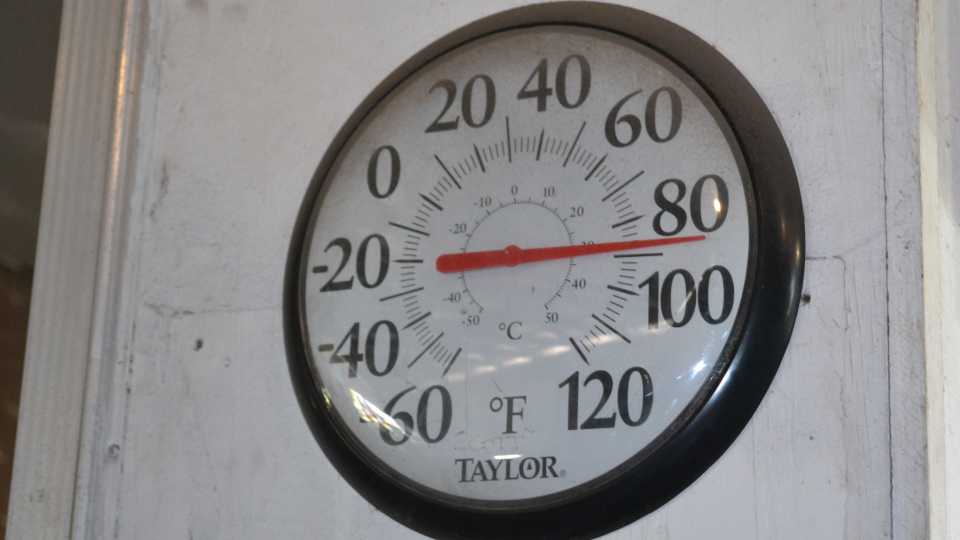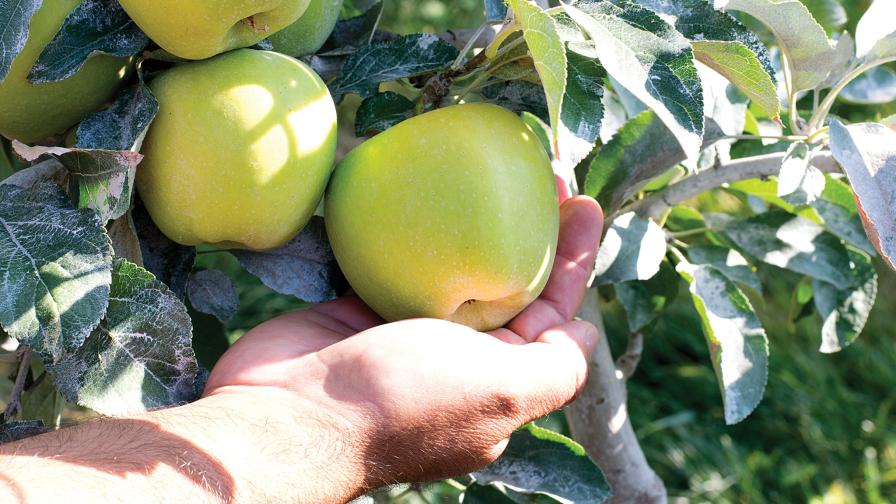Q&A With United Fresh’s New Sustainability Leader

Last year, Burleson Smith, former director of pest management policy at USDA, joined the United Fresh Produce Association as vice president, environmental affairs and sustainability. Smith’s job requires him to lead the United Fresh Foundation’s Center for Global Produce Sustainability, which was established in 2009. Some of his goals are to develop programs linking the produce supply chain from farm to consumer to advance environmental responsibility, social acceptability, and economic viability of the fresh produce industry.
On board from 2002 to 2009 at USDA as an appointee in the Bush Administration, Smith advised the deputy secretary on pesticide and environmental policy, serving as agricultural liaison with EPA, and providing agricultural expertise to other government agencies on environmental issues. Smith also served as a principal with the Policy Navigation Group, providing consulting services on natural resource and environmental issues
.
AVG had an opportunity to ask Smith a few questions about how he defines sustainability, his role in helping growers with their sustainability efforts, and how United is working to get the produce industry’s message to the public.
Q1 Sustainability means different things to different people. How do you define sustainability?
I think the three main underpinnings of sustainability, across the board, have been profitability of companies, protecting the environment, and the community aspect, or people component. Sustainability is determined by a management approach to operating a business for the long haul. As our chair of the Sustainability Advisory Board, Nikki Rodoni from Gills Onions, has said, it is more than environmental stewardship.
To be truly sustainable in the produce industry you have to have a healthy company; one that is profitable. That is why, within the Center for Global Produce Sustainability, we have defined sustainability as practices that result in conditions that help meet current and future human needs, preserve environmental quality, responsibly use resources, and support economic viability for current and future generations.
Q2 What is your role in helping growers communicate their efforts to customers and consumers?
My role is to work with our membership to share their experience and expertise and channel it into a useful program to help all segments of the produce industry. We are working to find ways to help members tell their customers about the positive aspects of the industry’s sustainability efforts.
This started back in 2010 when United sponsored the Global Conference on Sustainability in Las Vegas as part of their annual meeting. Through the generous funding of Bayer CropScience, the Center for Global Produce Sustainability was formed as part of the United Fresh Foundation. We developed a website (www.unitedfreshfoundation.org) that we are continuing to populate with information on sustainability efforts in the produce sector. We are trying to highlight what members are doing and help others see, showing examples, what they can do in their own operations. This spring in Dallas as part of United Fresh 2012, we had several advisory members speak on sustainability in the real world, specifically on how they are developing programs, implementing them, and
dealing with challenges.
It is important to note that in agriculture, there are many variables that come into play that need to be addressed. For example, there are sustainability programs for improving energy efficiencies in buildings. These are primarily engineering changes that can be made to increase the efficiency of heating, cooling, lighting, and transportation. What a lot of people lose sight of in the produce industry is that, at the production level, growers deal with biological systems that are variable and are subject to all of the challenges Mother Nature throws at them.
Communicating these types of challenges to consumers is important. Most consumers want to know that they are being provided a product that is wholesome and is being produced in an acceptable manner.
Q3 As sustainability is an evolving area, how can growers get involved to help shape the future, continuing to make improvements?
One aspect that makes agriculture, in general, sustainable is that the industry continually evaluates and incorporates technology into its operations. Over the past 100 years, look at how ag production has improved with irrigation, mechanization, crop protection, plus all the advances in plant breeding technology. Much of this technology is incorporated in each production cycle.
These are all things I think people outside of agriculture don’t recognize. People don’t realize these are significant improvements that contribute to the affordability and availability of fresh produce.
At the same time, we are continually learning how to better use these technologies. Ag operations are looking for efficiencies, which is the underpinning of sustainability. They continue to improve by constantly evaluating their expenses and the systems they use.
Q4 What are your end goals in the sustainability effort or is this a process that will be constantly moving forward?
I think sustainability efforts will be evolving and developing. Short-term, we want to raise awareness of what producers are already doing and get their messages out through the value chain. I think many don’t realize the good work they are doing. If you look back 15 years ago and compare it to today, many are using land and water resources more efficiently.
I’ve heard a lot of people say that sustainability is here to stay. To a large part, I would agree. The companies that are sustainable are the ones that have consistently made good decisions covering key production factors over time. That is what it will take to be successful going forward.
How these operations do it and the information they collect probably
will continue to change. The sustainable operations will find ways to incorporate that information into their management decisions.









